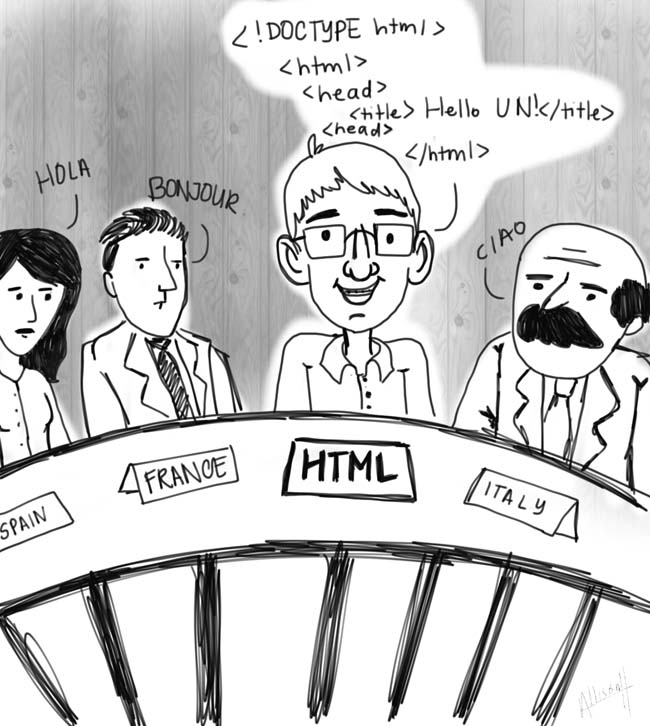A little over a month ago, the Faculty of Arts and Sciences at the College of William and Mary moved to replace the current GER system with a new system of required courses called the College Curriculum, or COLL. Although the efficacy of COLL remains to be seen, it is already clear that an update to the foreign language proficiency requirement would be timely and advisable. Currently, students who fail to take four years of a language in high school (or place out by means of the SAT, AP, IB, what have you) are required to complete the fourth semester of a foreign language at the College, where the options run the gamut of modern languages. With all due respect to the faculty, I would like to submit the addition of three new languages to fulfill the requirement: HTML, CSS and JavaScript.
As Dean of the Faculty of Arts and Sciences Kate Conley told William and Mary News, “Our faculty have moved carefully, precisely, and boldly to design a liberal arts curriculum that’s right for our time and looks to the future.” Ms. Conley, I trust that the faculty has proceeded with the best interest of the undergraduate student body in mind, but I am hard-pressed to believe that four semesters of Italian is a more forward-looking alternative to four semesters of the three basic programming languages of website design.
Ms. Conley, you say that COLL is right for our time, and it would be platitudinous for me to say that we live in an increasingly digital world — one in which computing power increases exponentially and wherein a rudimentary understanding of web design would prove useful on the job market — yet, the faculty has not moved to arm students with perhaps the greatest boon it could afford them: technological literacy.
Beyond the financial advantages a student would gain from learning programming languages, there is a more immediate, practical concern that ought to be addressed: Students who do not care to take foreign languages will not care to learn them. It’s important to remember that languages take a tremendous amount of time and effort to learn. This is by no means a reflection on the terrific language professors teaching at this school, but no rational student will devote precious time to four semesters of a language that he or she does not care about. Students will prioritize other classes and extra-curriculars before the language, hastily study for tests at the last minute, and watch their GPAs fall bit by bit. But give those students something of immediate and practical value, something from which, on their laptops’ monitors, they can see the immediate results of their efforts — and the faculty will see language students rise to the challenge.
The practicality of programming languages is undeniable, and for many students, learning HTML, CSS and JavaScript would be a rigorous process — one that they would have to approach with engagement and finesse. And that is exactly what a college curriculum should strive for.
Email Zachary Frank at zsfrank@email.wm.edu.

